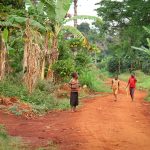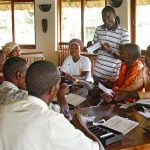CNH: The Emergence of Adaptive Governance Arrangements for Tropical Forest Ecosystems

Dates:
2011-2016
Funding:
Contact person:
Partners:
Countries:
Uganda, USA, Poland
Description – essential information
Many conventional forest protection programs rely on centrally imposed solutions which ignore the complex dynamics of local socio-ecological systems.
The proposed project aimed at generating new knowledge on long-standing questions about the origins of adaptive forest governance. During the research, three dynamic relations were identified, which are all significant to understanding the differences in the effectiveness of locally developed adaptive governance systems. The main hypothesis of the project was that the emergence of adaptive governance is critically linked to three factors: local ecological knowledge; cultural values and beliefs, and socioeconomic inequalities. We were responsible for the design and development of social simulation that was further used in experiments in the area of adaptive governance conducted as part of the project in Uganda.
Results
The article Resilience and Alternative Stable States of Tropical Forest Landscapes under Shifting Cultivation Regimes was published. The list of authors included, i.a.:Piotr Magnuszewski, Katarzyna Ostasiewicz, Robin Chazdon, Carl Salk, Michał Pająk, Jan Sendzimir, Krister Andersson.














